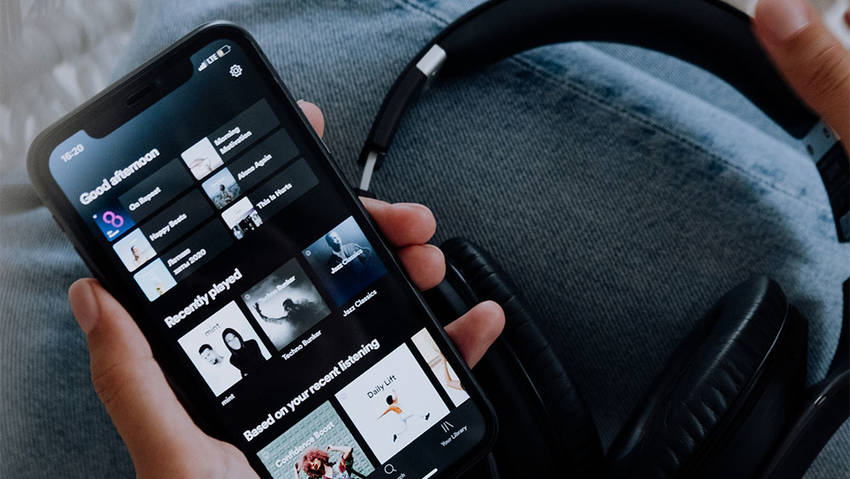Spotify: Why They’re Leaders in the Music Streaming Industry
Jun
20
Other streamers like Apple Music, Pandora, Amazon Music, and SoundCloud have personalized playlists, too. They just aren’t as successful as the ones on Spotify. And they don’t use the same technology as Spotify does to create these playlists. Other platforms, like Amazon Music, SoundCloud, and Apple Music, use manual curation via “music experts” to create playlists for users. Pandora does things a little differently where its code filters for certain tags that are manually added by users. Then, Pandora’s code creates playlists with similar music using those tags. Regardless, Spotify still does it best with an open-source tool, Hadoop.
How Spotify’s Personalization Works
Spotify uses Hadoop, an open-source framework that uses commodity cluster hardware. Basically, Spotify uses Hadoop to track and log users’ metadata, such as customer data and specific music tracks. Spotify creates playlists based on users’ established listening habits using collaborative filtering techniques, natural language processing (NLP), and audio models. Spotify employs collaborative filtering to suggest tracks to millions of users based on millions of other users' preferences. To do this, Spotify uses Python, a computer programming language used to conduct data analysis, automate tasks, and build websites and software. Specifically, Python libraries create two types of vectors using a long, complicated formula: user vectors and song vectors. Then, they’re able to compare those vectors to find out which songs are similar.
Spotify also uses NLP via Echo Nest, a music intelligence program that scans ten million music-related pages for descriptive terms, each of which has a weight to it to tell the system how important the description it is. That weight then tells the program how important the description is, and the engine then determines which two pieces of music or artists are similar. Lastly, unlike collaborative filtering and NLP, audio models analyze new songs with convolutional neural networks, which is the same technology facial recognition software uses. After it’s processed, Spotify uses the data the neural network collects like time signature, loudness, and tempo to compare and recommend tracks based on similarities found in the raw audio. Equipped with collaborative filtering, NLP, and audio models, Spotify's recommendation system is superior to other platforms.
The Success of Spotify
The overall process of Spotify's recommendation models is complicated, but it demonstrates how incredibly useful it can be when comparing all this data. It’s become the brand’s competitive advantage because of how well they’re able to leverage that to keep their customers long-term. Users love these playlists so much that they can’t imagine abandoning the platform for something else.
With its immense amount of success over the past few years, Spotify continues to create more and more personalized playlists. It’s so popular, in fact, that people expect a level of personalization when listening to music. So, while other music platforms offer personalized playlists, it remains to be unmatched compared to Spotify’s efforts. And even if other platforms followed suit with the same technology, Spotify is so far ahead in the music streaming industry, it will be hard for anyone to catch up to them.
|
Pacific Software Publishing, Inc. 1404 140th Place N.E., Bellevue, WA 98007 |
| PSPINC Creates Tools For Your Business |
| Pacific Software Publishing, Inc. is headquartered in Bellevue, Washington and provides domain, web, and email hosting to more than 40,000 companies of all sizes around the world. We design and develop our own software and are committed to helping businesses of all sizes grow and thrive online. For more information you can contact us at 800-232-3989, by email at info@pspinc.com or visit us online at https://www.pspinc.com. |



















